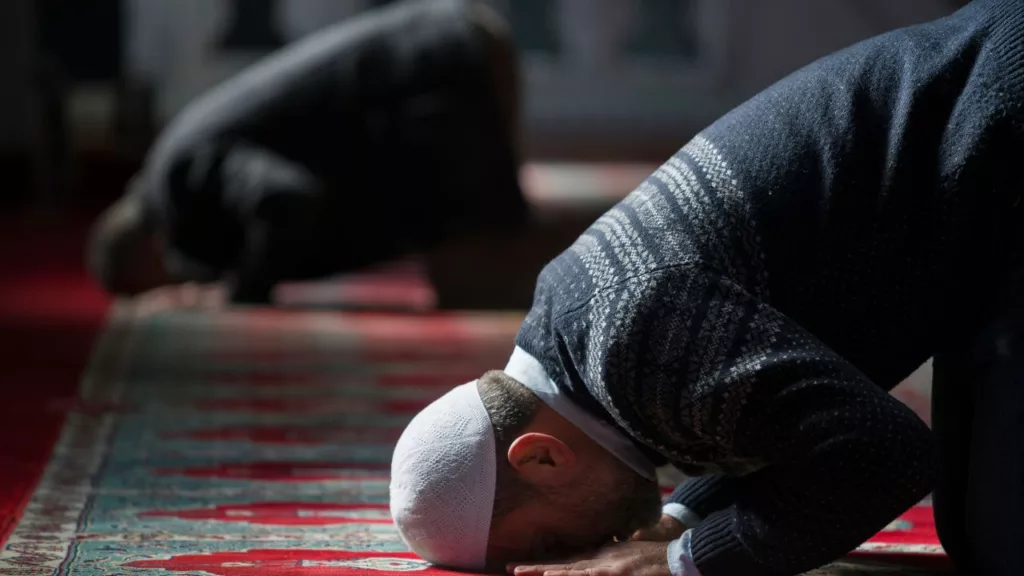
Muslim Prayer Times
Muslim prayer times refer to specific moments during the day when Muslims are required to perform their daily prayers, known as Salah or Salat. There are five daily prayers: Fajr (pre-dawn), Dhuhr (midday), Asr (afternoon), Maghrib (evening), and Isha (night). These times are determined based on the position of the sun and are significant for maintaining a strong spiritual connection, discipline, community bonding, and seeking guidance in the Islamic faith.
- Is Sneako Muslim or Christian? | Unreveiling the Truth | Religious Beliefs | 2023
- What Does Heaven Iook like |Islamic Article|2023
- Most Powerful Surahs in Quran

Introduction
Muslim prayer times, also known as Salah or Salat times, are a fundamental aspect of Islamic worship. These times determine when Muslims should perform their daily prayers, which are a central part of their faith. In this article, we will explore what Muslim prayer times are, how they are calculated, and why they are significant to Muslims and anyone interested in learning about Islam.
What are Muslim Prayer Times?
Muslim prayer times are specific moments during the day when Muslims are required to perform their obligatory prayers. These prayers are known as Salah and are one of the Five Pillars of Islam, making them essential to a Muslim’s daily life.

The Five Daily Prayers
Muslims perform five daily prayers, each at a designated time:
- Fajr: The pre-dawn prayer performed before sunrise.
- Dhuhr: The midday prayer, performed after the sun passes its zenith.
- Asr: The afternoon prayer, observed in the late afternoon.
- Maghrib: The evening prayer, conducted just after sunset.
- Isha: The night prayer, performed after twilight has disappeared.
How are Muslim Prayer Times Calculated?
Muslim prayer times are determined based on the position of the sun in the sky. They are calculated using various methods, with the most common being the following:
- Islamic Prayer Time Calculators: There are numerous online tools and smartphone apps that provide accurate prayer times based on your location.
- Astronomical Calculations: Some mosques and religious organizations use precise astronomical calculations to determine prayer times, ensuring accuracy.
- Local Sightings: In some cases, communities rely on local sightings of the moon to determine the start of the Islamic months, which in turn affects prayer times.
Why are Muslim Prayer Times Significant?
For Muslims, prayer times are of immense importance for several reasons:
- Spiritual Connection: Praying at the prescribed times helps Muslims maintain a strong connection with Allah (God) throughout the day.
- Discipline: Regularly observing prayer times instills discipline and structure in a Muslim’s life.
- Community Bonding: Muslims often gather at mosques for congregational prayers, fostering a sense of community.
- Reminder of Faith: The call to prayer (Adhan) serves as a constant reminder of their faith, even in the midst of busy daily routines.
- Seeking Guidance: Muslims turn to prayer for guidance, forgiveness, and gratitude.
Conclusion
Understanding Muslim prayer times is crucial for fostering intercultural awareness and promoting religious tolerance. These times are not only significant to Muslims but also provide an opportunity for people of different faiths to learn about the Islamic tradition and its practices. By respecting these times and the rituals associated with them, we can promote harmony and understanding among diverse communities.
FAQS – Muslim Prayer Times
What are Muslim prayer times?
Muslim prayer times are specific moments during the day when Muslims are required to perform their obligatory prayers, known as Salah or Salat.
How many daily prayers do Muslims perform, and what are their names?
Muslims perform five daily prayers: Fajr (pre-dawn), Dhuhr (midday), Asr (afternoon), Maghrib (evening), and Isha (night).
How are Muslim prayer times determined?
Muslim prayer times are calculated based on the position of the sun in the sky. Various methods, including Islamic prayer time calculators, astronomical calculations, and local moon sightings, are used to determine these times.
Why is it important for Muslims to pray at specific times?
Praying at prescribed times helps Muslims maintain a strong connection with Allah (God), instills discipline in their daily lives, fosters community bonding, and serves as a reminder of their faith.
Are Muslim prayer times the same worldwide?
No, prayer times vary depending on the geographical location. They are calculated based on the position of the sun relative to the observer’s specific location.
How can I find the accurate Muslim prayer times for my area?
You can use Islamic prayer time calculators available online or on smartphone apps. Local mosques and Islamic centers may also provide prayer time schedules for your area.
Is it necessary for non-Muslims to be aware of Muslim prayer times?
While it’s not obligatory for non-Muslims to be aware of prayer times, it can promote cultural understanding and respect among diverse communities.
What is the call to prayer (Adhan), and when is it made?
The Adhan is the call to prayer made before each Salah. It announces the start of the prayer and is recited by a muezzin from the mosque’s minaret.
Do Muslims have flexibility in performing their prayers if they miss the designated time?
Muslims are encouraged to pray within the prescribed time, but there is some flexibility in case of genuine reasons, such as illness or travel. These missed prayers can be made up later.
Are there any specific etiquettes or rituals associated with Muslim prayer times?
Yes, there are etiquettes and rituals, such as facing the Kaaba in Mecca, performing ablution (Wudu), and reciting specific verses and supplications during each prayer. These vary for each Salah.





